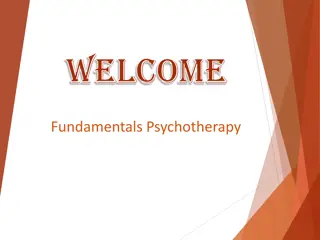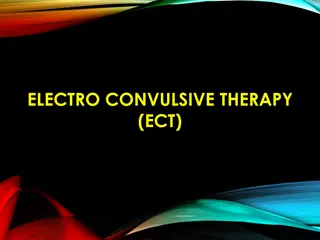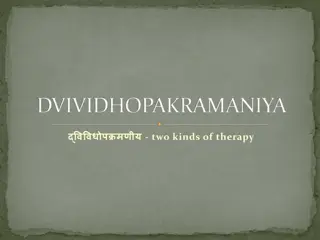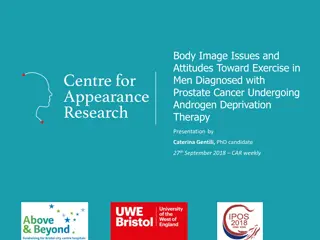
Gestalt Therapy and Its Key Concepts
Discover the principles of Gestalt Therapy, which emphasizes personal responsibility and awareness to help individuals understand their thoughts, feelings, and behaviors. Learn about the history, philosophy, and applications of this approach in mental health. Explore how Gestalt Therapy focuses on the present moment and the client's internal experiences.
Download Presentation

Please find below an Image/Link to download the presentation.
The content on the website is provided AS IS for your information and personal use only. It may not be sold, licensed, or shared on other websites without obtaining consent from the author. If you encounter any issues during the download, it is possible that the publisher has removed the file from their server.
You are allowed to download the files provided on this website for personal or commercial use, subject to the condition that they are used lawfully. All files are the property of their respective owners.
The content on the website is provided AS IS for your information and personal use only. It may not be sold, licensed, or shared on other websites without obtaining consent from the author.
E N D
Presentation Transcript
Gestalt Therapy
Introduction People have to find their own way and have a responsibility if they want to achieve their wise The purpose of this approach is to make client get their awareness about what they feel and they do and learn to respon about their own thinking, feeling and behavior.
The History Is develop by Frederick (Fritz) and Laura Perls in 1940 This approach teachs client and counsellor phenomenological awareness, it s about how people understanding, feeling, and doing Focus on process (what is happening) rather than content (what is being discussed)
Philosophis The The Field Theory Perspective phenomenological perspective The Existential Perspective
The Opinion about Human Is influenced existential and phenomenology philosophy People can handle and solve their own problem, they can use their awareness and their present experiences The important area in counselling process are the thinking and feeling of client in present
Mental health in human People who can keep their awareness alive without any destruction. They will know their own need and the alternative of environment which can fill their need People who can feel and share their own conflict or frustration awarenessly and full of concentrate without any fantacy People who can different between conflict and problem which can be solved Take a responsibility of their self
Neurotic people is a person who has many desire at the same time that s why they can t fill all their need Less contact of their environment Confluence Unfinished business Fragmentation Topdog/underdog Polarity
Gestalt Cycle Sensation Awareness Tranquility Satisfaction Mobilisation Final contact Action
Basic Concept Here and Now Power is in the present The anxiety is caused of any space between real and future expectation Counsellor use what question, not why
Modes of Defense Introjection Projection Retroflection Confluence and isolation Deflection Avoidance
Purposes of Counselling To help client to get their awareness of what they do and how they do. Awareness consist of insight self acceptance, knowledge about environment, and responsibility to their own choice Ability to keep contact with others Accept and express their feeling, thinking, and self efficacy
The Roles of Counselor Focused on feeling, awareness, gesture, obstacle of energy, and obstacle to get client s awareness As a artistic participant Projection screen Can know and interpret kind of client s language
The Phases of Counselling Process The beginning phase Clearing the ground Existential encounter Integration Ending
Counselling Techniques Topdog vs underdog Making the rounds Empty chair I take Playing projection The rehearsal experiment responsibility for






















